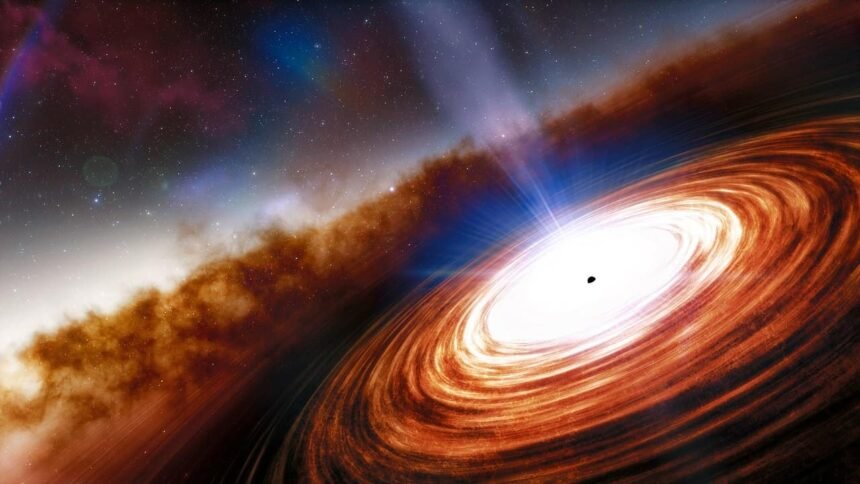Researchers from the University of Sydney, Australia, have made a groundbreaking discovery that unravels one of the long-standing mysteries of the expanding universe proposed by Albert Einstein. Their study reveals that in the early stages of the universe, just after the Big Bang, time appeared to flow five times slower than it does in the present day.
Lead author of the study, Geraint Lewis, explains that when looking back to a time when the universe was slightly over a billion years old, the passage of time seemed significantly different. “If you were present in this infant universe, one second would have felt like a normal second,” says Lewis. “However, from our vantage point more than 12 billion years into the future, that early period appears to drag, as if time itself was stretched.”
The concept of time has always been a subject of fascination and exploration for scientists and philosophers alike. Albert Einstein’s theory of general relativity, proposed a century ago, introduced the notion that the fabric of space and time is intertwined, forming a four-dimensional continuum known as spacetime. According to this theory, massive objects like stars and galaxies can distort spacetime, causing time to slow down or speed up relative to the strength of the gravitational field.
Building upon Einstein’s ideas, the researchers delved into the early universe, seeking to understand how time unfolded during its formative years. By analyzing the available cosmological data and running computer simulations, they were able to determine that time in the infant universe progressed at a rate five times slower than in the present day.
To grasp the implications of this discovery, imagine observing a clock during the early stages of the universe. Each second would appear to tick by at the same rate as it does today, but the outside observer from our current standpoint would witness time seemingly stretching out. This phenomenon hints at the peculiar nature of time in the early universe and offers new insights into the fundamental properties of spacetime.
While the findings may sound perplexing, they align with our current understanding of cosmic expansion. The universe, as we know it, has been expanding since the Big Bang, causing galaxies to move away from each other. Light from distant objects takes time to reach us, so we observe celestial events as they occurred in the past. As we look further back in time, we peer deeper into the universe’s history, where the effects of expansion become more pronounced.
Lewis and his team’s research contributes to our understanding of this cosmic expansion and its impact on time. By revealing that time in the infant universe passed at a slower pace, they provide a new piece to the puzzle of how the universe evolved into its present state. These insights not only shed light on the mysteries of the early universe but also deepen our understanding of the underlying mechanisms driving the expansion.
Moreover, this discovery carries implications for our perception of time and the fundamental laws of physics. By understanding the behavior of time in extreme conditions, scientists can refine our models and theories, paving the way for future breakthroughs in cosmology and astrophysics.
As our exploration of the universe continues, researchers are constantly pushing the boundaries of knowledge. Geraint Lewis and his team’s study represents another stride forward in unraveling the secrets of the cosmos, bringing us closer to comprehending the intricacies of the universe’s birth and evolution. With each new revelation, we gain a deeper appreciation for the wonders of our existence and our place within the vast tapestry of time and space.




